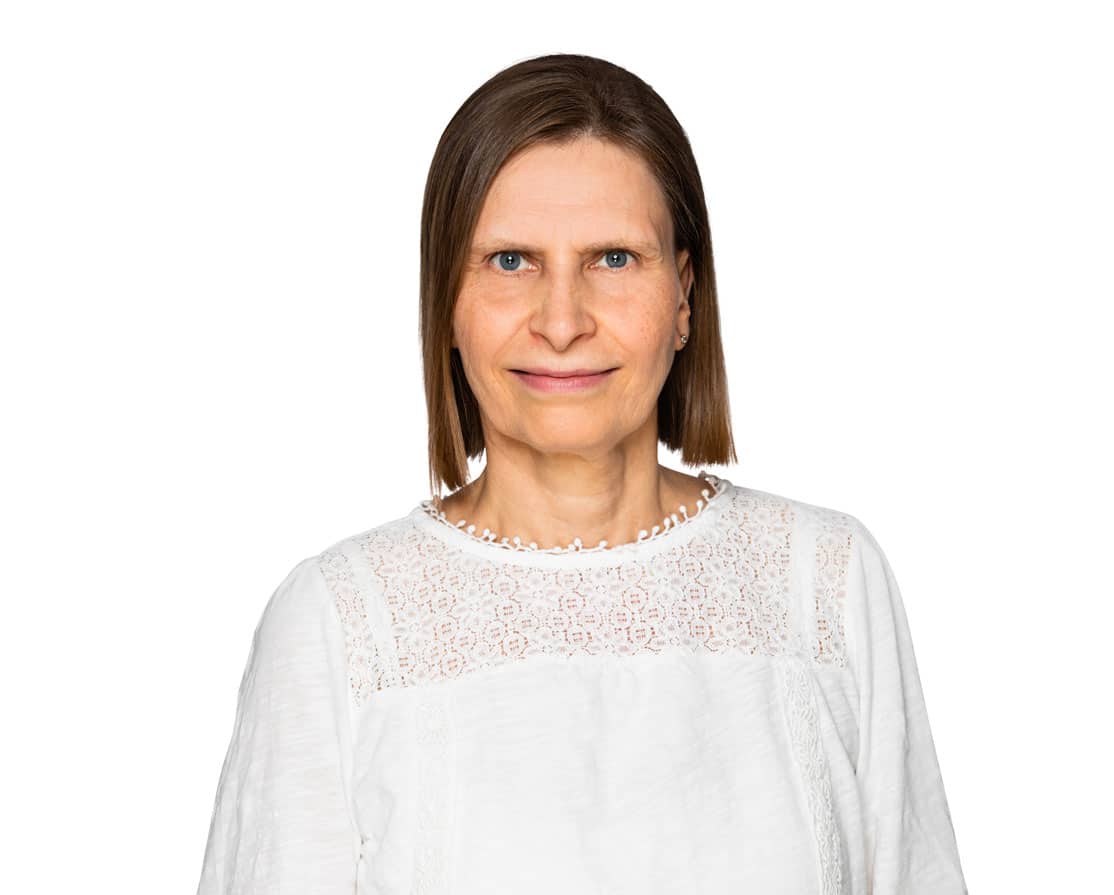Unfulfilled desire to have children: How can I increase my fertility and finally get pregnant?

You would like to finally become pregnant? You are not alone with this wish. In Germany, about every 7th couple is affected by involuntary childlessness (for a variety of reasons).
No matter where you are, whether at the beginning of a new happiness with your partner or at the end of a failed fertilization treatment in a fertility center: We support you with our holistic approach and various alternative medical treatment options to fulfill your dream. THERA Praxisklinik employs many doctors from different specialties, and our medical assistants and trained health and nursing staff can also look back on a wealth of experience, some of which spans decades – we are a strong team and work together for you.
If you have the desire to really exhaust all possibilities and/or to prepare your body in the best possible way for a planned pregnancy, then you are in the right place with us. Our goal is always to create health and life. We achieve this by directly tracking down and releasing blockages.
How can it be that more and more couples remain involuntarily childless, although you seem to do everything right? This question moves you and us and perhaps we can give some initial answers in this text.
Basically, the younger the body, the better the chances of success in getting pregnant. Now, in today’s time and society, many women and men decide later and later to want to start a family. And of course, we can’t cut back our age at the time of wanting to have a child. The biological age in the sense of cell and organ health, however, can!
Possible causes of an unfulfilled desire to have children
Apart from the age of the couple, many other factors can influence fertility. Doctors usually focus on egg and sperm quality in the course of fertility treatment. If this quality is not sufficient according to the findings report (or other organic disorders are present), then the solution is hormone treatment and/or artificial insemination such as In Vitro Fertilization. And then there are also couples where everything seems to be fine and yet it just doesn’t want to work out with the conception of the offspring.
Imbalance of hormones
Successful egg fertilization and implantation requires a balanced hormone balance. The sex and fertility hormones estrogen, progesterone, LH and FSH play a particularly important role here. However, our hormone system can be sensitively influenced by a wide variety of stimuli or disruptive factors. Rapid weight gain or loss, extreme sports, stress or a lack of biorhythm often have an unfavorable effect. Malfunctions of hormone-producing organs such as the adrenal glands or thyroid gland also naturally have a major influence. In addition, our fatty tissue, for example, is a hormone-active tissue. This explains why overweight women have a significantly higher risk of developing fertility problems, and sperm quality also suffers in overweight men.
Very important to note in this context is the issue of environmental toxins: heavy metals, pesticides, organic solvents or plasticizers (bisphenol A/phthalates) are just a few examples of substances that can disrupt ovulation and limit fertility (also in men). Environmental pollutants can mess up our whole hormone regulatory system. Mercury, for example, can accumulate in the pituitary gland or even in the cervical secretion and thus pose an obstacle to conception.
Endocrine disruptors or xeno-hormones (=endocrine active substances) have long been suspected of having a damaging influence on our health. They are hidden in solvents and adhesives, herbicides, almost all types of plastic, fattening meat with synthetic estrogens, fabric softeners, Teflon pans and a wide variety of cosmetics such as deodorants, soaps, hair dyes or make-up. They disrupt our body’s hormone secretion. Sperm decline, infertility, cancer, obesity, sexual dysfunction or cyst formation are just a few possible health effects.
If you want to protect yourself a little better, you can download the “Tox fox” app and regain some control with it.
At THERA Praxisklinik we check the hormone status of our patients by means of a hormone saliva test. This examination method is much more informative compared to the conventional serum analysis, as the result reflects the amount of freely available hormones. By means of bioidentical hormone therapy and, if necessary, corrections of nutritional behavior and lifestyle, imbalances can then be gently treated or regulated.
Furthermore, we carry out a heavy metal load test in the practice, which can give important indications of a heavy metal load in the body.
The importance of micronutrients in the context of becoming pregnant
Iron, folic acid and iodine. These micronutrients are known to most people in connection with pregnancy or the desire to have children. And rightly so. And yet there is so much more to discover in the micronutrient jungle. Fortunately, countless studies exist that specifically examine the role and importance of vital nutrients in relation to fertility or a wanted or existing pregnancy. Even better, a targeted laboratory analysis of these parameters can quickly shed light on the issue.
Did you know that a deficit in amino acids or vitamins also affects fertility? And do you actually know what your vitamin B12 or vitamin D level is today?
Basically, the interaction of all nutrients is always important. If one component is missing, the biochemical cascade cannot run properly and the body’s own regulatory systems are disrupted.
Below you will find some interesting information regarding selected vital substances:
“Intake of supplemental folic acid, especially at doses higher than those recommended for prevention of neural tube defects, has been consistently associated with a lower incidence of infertility, a lower risk of pregnancy loss, and greater success in treating infertility.” *
Iron deficiency can reduce fertility
Iron is an essential trace element and its primary function is to bind oxygen in red blood cells. The prevalence of iron deficiency in women of childbearing age is estimated at about 20%. Significant factors that promote this deficiency are monthly menstruation with loss of blood and thus iron, as well as a meat-free diet. Iron deficiency is one of the most common micronutrient deficiencies worldwide! This should not be underestimated and is very important to consider in connection with a planned pregnancy. This is because during pregnancy, additional iron is needed due to the maturing baby and, last but not least, the birth itself is often accompanied by a large blood loss for the mother. As a result of too little iron, the mother may experience postpartum depression, pronounced fatigue and weakness or susceptibility to infections. In the child, an iron deficiency in the mother can cause, among other things, developmental disorders or a low birth weight.
Recommendations for particularly iron-rich foods can be found here: Iron content food
Certain medications such as stomach acid blockers or aspirin, calcium compounds, phosphates, caffeine, or certain ingredients in plant foods can inhibit iron absorption in the intestine.
Elizabeth M. Miller, in a 2016 review, looked at the physiology of iron in relation to women’s reproductive capacity and described a growing body of evidence linking iron deficiency to impaired fertility.

Vitamin D and immune regulation in relation to fertility disorders.
With regard to hypovitaminosis D, there are also numerous indications and evidence of a connection with reduced fertility. What is the reason for this and what is the connection here?
Most people know vitamin D primarily in connection with calcium and bone metabolism. What many, however, do not know: Vitamin D plays an important role in immune regulation. Vitamin D receptors are found in various immune cells such as monocytes, T and B lymphocytes and natural killer cells. Vitamin D helps regulate a balanced immune response and curbs the development of inflammation and autoimmunity. For example, higher serum vitamin D levels have been associated with a reduced risk of developing the autoimmune disease Hashimoto’s thyroiditis.
And what does the immune system have to do with fertility?
The immune system plays a central role in controlling pregnancy. It needs a delicate balance and increased immune tolerance for life to emerge. Immunological abnormalities, on the other hand, can cause devastating complications. In particular, the state of the mother’s immune system is a major fertility factor. In a sense, the immune system is an intersection where a relationship between the mother and the embryo is formed.
During fertilization and nidation of the egg, it needs immunosuppression to prevent rejection by the immune system. Several mechanisms bring about maternal immune tolerance at this point, and as described above, vitamin D is an important part of this.
However, if the immune system is out of balance or if there is a persistent inflammatory status, then this may be a reason for pregnancy failure.
For example, there are indications that an increased concentration of TNF-alpha (messenger substance of the immune system involved in inflammatory reactions) could be associated with infertility. In addition to an increased release of inflammatory mediators, TNF-alpha also causes an increased production of cortisol (=”stress hormone”). However, the formation of cortisol competes with the formation of certain sex hormones (both are formed in the adrenal gland from the same initial substance). This means that when our body produces more stress hormones, sex hormone production suffers.
Thus, stress on the one hand and pregnancy on the other hand are rather hostile to each other.
„Hypovitaminosis D is a risk factor for infertility and several adverse pregnancy outcomes.“ **
How does “persistent inflammation” occur?
“Inflammation” can have a wide variety of causes. These must be identified. In addition to a targeted search for pathogens (chronic persistent infections) and the search for toxins, autoimmune diseases or allergies, we at the THERA Praxisklinik always check in particular whether there is inflammation in the intestine (dysbiosis) or inflammation in the area of the teeth. What is often not known is that an inflammation in the intestine can also spread to the surrounding organs, i.e. the uterus or the ovaries. Histaminosis can also play a role here and should be clarified if necessary.
In men, too, a persistent (even low-grade) inflammatory status can have an impact on fertility: Sperm-producing cells in the testes suffer and hormone production is affected.
To get an overview of the inflammatory status & the state of the immune system, we perform targeted laboratory tests. This way we can determine how the balance of the immune system is.
Omega-3 fatty acid status
If the immune system has increased levels of natural killer cells in the uterus and/or blood, therapy with orally or intravenously administered omega-3 may be a promising therapeutic option.
Studies have shown that intravenously administered omega-3 increases the implantation rate and can thus contribute to the development and maintenance of pregnancy.
Antiphospholipid syndrome
Antiphospholipid syndrome is also an autoimmune disease. In this case, immune cells produce antibodies directed against components of the blood and vessel wall cells (phospholipid-protein complexes), resulting in a tendency to blood clotting. The presence of antiphospholipid syndrome may be responsible for failure of embryo implantation. In particular, it is associated with an increased rate of complications within pregnancy. It often goes undetected because it is not specifically looked for. The good news is that it is both easy to detect and easy and effective to treat.
Is THERA Praxisklinik the right address for me and my desire to have a child?
We can help you if:
- You have already had reproductive medical treatment – but without success
- You are currently undergoing treatment at a fertility center and would like to receive complementary medical support to improve your chances of success.
- You are at a loss as to why you are not getting pregnant and/or no organic condition has been diagnosed by your doctor (unexplained infertility).
- You want to improve the quality of your eggs or sperm cells or simply prepare your body as well as possible for pregnancy.
- You have already had one or more miscarriages
- You suffer from endometriosis, fibroids, cysts/PCOS or cycle disorders
- You suffer from an autoimmune disease such as Hashimoto thyroiditis or chronic infections
- You have other metabolic diseases such as diabetes mellitus/insulin resistance or are underweight/overweight
How does “sperm fitness” succeed?
Sperm quality and concentration have demonstrably been greatly reduced in recent decades. Understandably, sperm do not like stress, toxins or nutrient deficiencies very much either.
Sperm want life! The math is simple at first: enough nutrients on the one hand and as few stresses as possible on the other. A few examples:
- Blomberg et al. showed in 2011 that vitamin D serum level correlates positively with sperm motility (vitamin D receptors are located in the male as well as in the female reproductive tract).
- Selenium contributes to spermatogenesis
- Zinc is needed to ensure proper copying of the genetic code during the sperm formation process and affects sperm lifespan. Zinc deficiency can lead to decreased sperm quality and motility.
- A healthy and balanced diet protects sperm from oxidative stress by supplying antioxidants
- The omega-3 fatty acid DHA can improve sperm function
Excessive testicular temperature, e.g. due to seat heating, can also significantly affect sperm quality.

Psychoemotional support
An unfulfilled desire to have children is an enormous burden that should not be underestimated. Worries, fears and frustration are not exactly helpful companions in the fulfillment of the wish – they have a weakening and disturbing effect, especially on hormone and immune regulation. Poor sleep upsets the biorhythm and excessive stress upsets our autonomic nervous system. In addition to the possibility of targeted stress diagnostics with, on the one hand, measurement of the “stress hormones” in the laboratory and, on the other hand, measurement of heart rate variability through precise recording and analysis of the heartbeat, we always accompany our patients on the psycho-emotional level. For this purpose, our patients are assisted by our systemic consultant Johanna Niermann in addition to the attending physician.
Infertility treatment at THERA Praxisklinik in Berli
- Check of the most important micronutrients
- If necessary, detailed clarification of immune status
- Heavy metal load test
- Detailed hormone status (incl. neurohormone status and thyroid), FSH, LH, progesterone, estradiol
- If necessary, gynecological clarification (vaginal ultrasound, clarification of PCOS/endometriosis)
- Clarification of thrombosis tendency/antiphospholipid syndrome
- Cycle anamnesis and regulation
- Targeted nutritional counseling
- Psychoemotional support
- Examination of dental status and examination for inflammatory foci
- Holistic support through naturopathy, neural therapy and acupuncture
Your contact persons
Contact and appointment possible at any time
Do one or more of the above points apply to you and would you like to do something for your health? Are you curious? Please feel free to contact us by phone to make an appointment.
You can reach us according to our opening hours at tel. 030 79016533. We look forward to your call or message.
References
*Diet and fertility: a review, Audrey J Gaskins, Jorge E Chavarro, Am J Obstet Gynecol. 2018 Apr;218(4):379-389. doi: 10.1016/j.ajog.2017.08.010. Epub 2017 Aug 24.
**Immunomodulatory Effects of Vitamin D in Pregnancy and Beyond
F Cyprian, E. Lefkou, K. Varoudi, G. Girardi, Front Immunol. 2019 Nov 22;10:2739.
Uwe Gröber, Orthomolekulare Medizin
Vitamin D is positively associated with sperm motility and increases intracellular calcium in human spermatozoa. Blomberg Jensen M, et al. Hum Reprod. 2011. PMID: 21427118
The effect of vitamin D on sperm motility and the underlying mechanism, K Jueraitetibaike et al., Asian J Androl. 2019 Jul-Aug;21(4):400-407
Vitamin D deficiency is common and associated with metabolic risk factors in patients with polycystic ovary syndrome, Hang Wun Raymond Li , Rebecca E Brereton, Richard A Anderson, A Michael Wallace, Clement K M Ho, Metabolism, Volume 60, ISSUE 10, P1475-1481, DOI:https://doi.org/10.1016/j.metabol.2011.03.002
Effects of vitamin D supplementation in women with polycystic ovary syndrome: a review
Daniela Menichini , Fabio Facchinetti doi: 10.1080/09513590.2019.1625881. Epub 2019 Jun 12. Gynecol Endocrinol . 2020 Jan;36(1):1-5.
The reproductive ecology of iron in women / E.M.Miller, YEARBOOK OF PHYSICAL ANTHROPOLOGY 2016 Jan;159(Suppl 61):S172-95. doi: 10.1002/ajpa.22907
www.onkopedia.com
The association between serum 25OHD levels and hypothyroid Hashimoto’s thyroiditis. Mansournia N, Mansournia MA, Saeedi S, Deghan J. J Endocrinol Invest. (2014) 37:473–6. doi: 10.1007/s40618-014-0064-y 81.
The effects of vitamin D supplementation on thyroid function in hypothyroid patients: a randomized, double-blind, placebo-controlled trial. Talaei A, Ghorbani F, Asemi Z. Indian J Endocrinol Metab. (2018) 22:584–8. doi: 10.4103/ijem.IJEM_603_17
Vitamin D and 1,25(OH)2D regulation of T cells. Cantorna MT, Snyder L, Lin YD, Yang L. Nutrients. (2015) 7:3011–21. doi: 10.3390/nu7043011 38.
Specific high-affinity receptors for 1,25-dihydroxyvitamin D3 in human peripheral blood mononuclear cells: presence in monocytes and induction in T lymphocytes following activation. Bhalla AK, Amento EP, Clemens TL, Holick MF, Krane SM. J Clin Endocrinol Metab. (1983) 57:1308– 10 doi: 10.1210/jcem-57-6-1308 39.
The implication of vitamin D and autoimmunity: a comprehensive review. Yang CY, Leung PS, Adamopoulos IE, Gershwin ME. Clin Rev Allergy Immunol. (2013) 45:217–26. doi: 10.1007/s12016-013-8361-3











